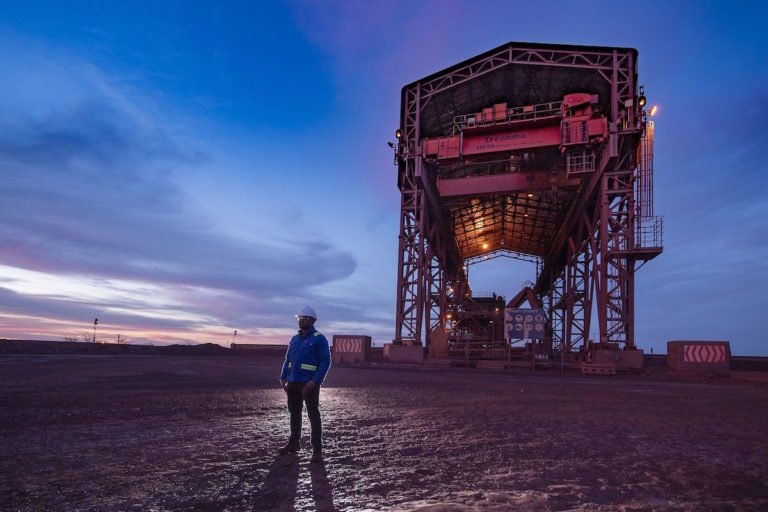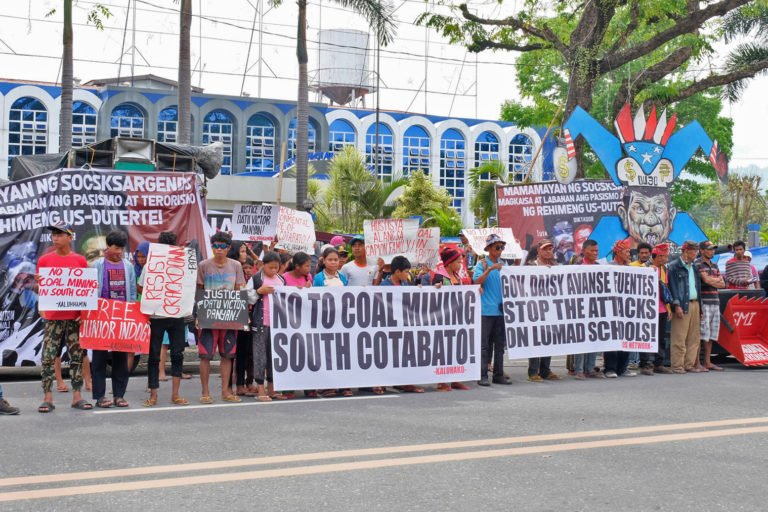- Civil society groups in the Democratic Republic of Congo are demanding the revocation of the license for a Chinese-owned gold miner
operating inside a wildlife reserve that’s also home to nomadic Indigenous groups. - Up to 90% of mines in South Africa aren’t publishing their social commitments to the communities in which they operate, in violation of the law, activists say.
- A major Nigerian conglomerate that was granted a major concession for industrial developments in 2012 has still not compensated displaced residents, it was revealed after the company announced it’s abandoning the project.
- Element Africa is Mongabay’s bi-weekly bulletin rounding up brief stories from the commodities industry in Africa.
Groups demand end to Chinese gold mine operating inside DRC reserve
ITURI PROVINCE, Democratic Republic of Congo — Civil society groups have condemned what they say is illegal gold mining in Okapi Wildlife Reserve in the Democratic Republic of Congo. For several years, a Chinese-owned company, Kimia Mining, has been operating a concession inside the reserve, irregularly granted by the DRC government. The groups are calling for the immediate revocation of the concession to protect the reserve.
At a press conference on Oct. 18, they accused Kimia of depleting forest cover, polluting rivers, and compromising forest habitat in the reserve. The reserve, on UNESCO’s List of World Heritage in Danger, covers some 13,700 square kilometres (5,300 square miles) of the Ituri rainforest and is home to 470 bird and mammal species, including the endangered okapi (Okapia johnstoni) that gives the park its name, similarly threatened chimpanzees (Pan troglodytes troglodytes), and critically endangered forest elephants (Loxodonta cyclotis).
It is also home to Indigenous Efe and Mbuti nomads, who depend on rivers originating in the reserve, said Gabriel Nenungo, coordinator of geologists in Ituri province.
“We have observed Chinese-managed dredgers in the Ituri River, and open mercury pits can be seen from the air,” Nenungo said. “The discoloration of the water indicates pollution, and even potential mercury poisoning. The roads that now pierce the forest allow the passage of many vehicles and large trucks. Operations that began along the river now extend into the forest.”
Augustin Mpoyi, principal technical adviser for the civil society group Council for Environmental Defence through Legality and Traceability (CODELT), said, “The permits awarded to Chinese-owned Kimia Mining clearly contravene national law. The Ministry of Mines awarded these permits based on an inaccurate map in the National Mining Registry, which urgently needs to be updated to prevent such illegal exploitation.”
According to the civil society coalition, the mining activity has attracted armed groups who are trafficking in okapi skins and ivory.
The DRC military is providing security services for Kimia Mining, despite laws prohibiting it from being associated with mining operations.
Some of the CSOs say the reserve’s biodiversity can be salvaged if mining is stopped immediately. They’ve called on the government to revoke the illegal mining concession deal.
Refuge of endangered ‘African unicorn’ threatened by mining, poaching, deforestation
South Africa mines not making their social commitments known, communities say
POSTMASBURG, South Africa — Activists say dozens of South African mining companies are refusing to publicly release their social and labor plans, or SLPs, as required by law. Without access to these documents, communities find it difficult to evaluate mining companies’ social commitments or hold them accountable.
Public, up-to-date SLPs are a requirement for holding a mining license in South Africa. These plans should detail how the companies will support job creation and improved amenities in towns where they mine. The nonprofit organization Mining Affected Communities United in Action (MACUA) estimates that between 70 and 90% of mines in South Africa don’t publish their plans.
Established in 2011, the Kolomela mine, 22 kilometers (14 miles) from the town of Postmasburg in Northern Cape province, produces more than 9 million metric tons of iron ore every year. Since 2021, Kolomela, which is owned by mining giant Anglo American’s local subsidiary, Kumba Iron Ore, has rebuffed MACUA and community members’ efforts to get a copy of the mine’s 2020-2024 SLP.
Speaking after a meeting with the Postmasburg community on Oct. 15, the head of MACUA’s paralegal unit, Phyllia Ngoatje, said, “For the past two years, Kolomela mine has operated unlawfully without an SLP. This community has an understaffed clinic without a reliable water supply, potholed roads, and a high level of joblessness.”
In some places, MACUA succeeded in accessing mine SLPs only after making formal applications under South Africa’s freedom of information law. Kolomela provided its plan to Mongabay on Oct. 17 — two years after it was completed. The company still hasn’t given the community a copy.
MACUA is currently conducting social audits of mines across South Africa. Residents of mining-affected communities analyze the social and labor plans and itemize the projects that mines have promised to carry out, street by street, so that communities can assess them.

Communities displaced for failed project in Nigeria denied compensation
In 2012, the government of Nigeria’s Kogi state allocated 50,000 hectares, or nearly 124,000 acres, to a conglomerate with interests in cement, mining, steel, and sugar production. Ten years later, the company has still not paid the agreed compensation to villagers displaced from the area.
Residents lost access to their farms in the allocated area, but the BUA Group said on Oct. 18 that it never paid the community for the land it took over. Responding to a threat by state legislators to revoke its title, the company said it no longer has plans to use the property.
“There has been a massive deterioration of security in and around the area for the past few years making it practically impossible to start any project there as an investor,” it said in a statement.
“We wish to however state unequivocally that had we decided to proceed with the proposed project, BUA would have been happy to pay all dues and necessary compensation to the state and other stakeholders in line with our obligations.”
Nigeria’s state governments have the power to allocate land; they typically require companies granted title to large parcels to agree to community development agreements with host communities. But these agreements have not been concluded for many large-scale projects.
Ugbaa Kuma, who leads the Angel Support Foundation, a group that helps mining-affected communities demand their rights, said many communities don’t even know the law requires them to have such an agreement.
“The government is supposed to hold companies accountable, but sometimes once they settle some invisible hands, they are good to go,” she told Mongabay, using the local expression for a bribe.
The BUA Group, owned by tycoon Abdulsamad Rabiu, is Nigeria’s second-largest cement producer. The group also has a mining exploration license for iron ore elsewhere in Kogi state. In addition, it said recently that it has acquired about 70,000 hectares (173,000 acres) of land in Kogi and neighboring Kwara state to set up large sugar plantations.
New oil refinery ‘a huge disaster’ for Nigerian forest reserve
Anna Majavu, Mabel Adorkor Annang, and Ini Ekott contributed to this report.
Banner image: Okapi (Okapia johnstoni). Image by Bernard Dupont via Wikimedia Commons (CC BY-SA 2.0)
FEEDBACK: Use this form to send a message to the author of this post. If you want to post a public comment, you can do that at the bottom of the page.











